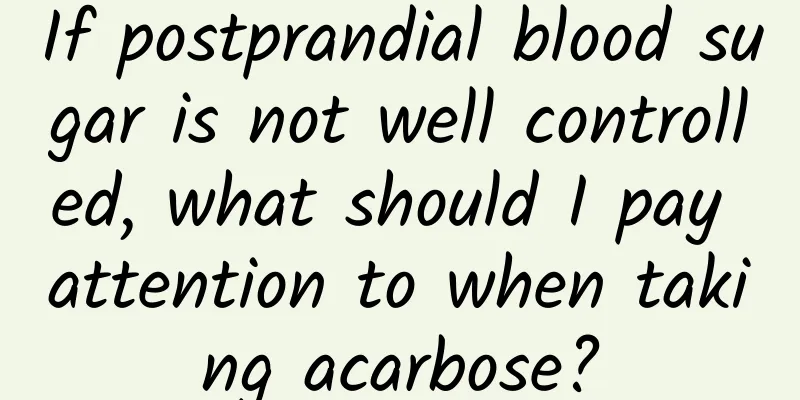How to eradicate Helicobacter pylori? What does it mean to be successful in eradication?

|
Author: Cheng Hong, Chief Physician, Peking University First Hospital Reviewer: Liu Jingshan, Chief Physician, Peking University Shougang Hospital After infection with Helicobacter pylori, most infected people have no obvious symptoms in the early stage, and some may not have obvious symptoms for their entire lives. However, after infection with Helicobacter pylori, the gastric mucosa will have a progressive inflammation process, from superficial gastritis to atrophic gastritis, intestinal metaplasia, atypical hyperplasia, and gastric cancer. If Helicobacter pylori is eradicated in the early stages, before atrophy and intestinal metaplasia occur, you will almost certainly not get Helicobacter pylori-related gastric cancer again in your lifetime. Early eradication treatment brings the greatest benefits. Figure 1 Original copyright image, no permission to reprint If the disease has progressed to atrophic gastritis, especially to the stage of intestinal metaplasia, eradicating Helicobacter pylori can reduce the risk of gastric cancer, but it cannot completely prevent the occurrence of gastric cancer. It just reduces the risk. These patients still need regular endoscopic follow-up and a gastroscopy every year or every two to three years. Therefore, after being infected with Helicobacter pylori, it is also recommended for asymptomatic people to actively eradicate Helicobacter pylori and nip gastric cancer in the bud. 1. How to eradicate Helicobacter pylori? Helicobacter pylori is a bacterium, so it must be eradicated with antibiotics. The current guidelines in my country recommend mainly quadruple therapy: acid inhibitors, such as omeprazole, rabeprazole, etc.; bismuth preparations, such as potassium citrate bismuth, colloidal bismuth tartrate, colloidal bismuth pectin, etc.; plus two antibiotics, such as amoxicillin, clarithromycin, metronidazole, furazolidone, tetracycline, levofloxacin, which are commonly used antibiotics in clinical practice. Figure 2 Original copyright image, no permission to reprint The biggest problem in eradicating Helicobacter pylori is bacterial resistance, so combined drug treatment is needed. In the past, when the resistance rate was low, triple therapy was used without bismuth preparations. Now, with the increase in bacterial resistance, the eradication rate of triple therapy is getting lower and lower, and the success rate is not even 50%. After adding bismuth preparations, the success rate can reach more than 80%, so triple therapy has been changed to quadruple therapy. In recent years, the two-combination regimen has begun to attract attention. This regimen has few side effects. Since Helicobacter pylori has a low resistance rate to amoxicillin in the regimen, its efficacy is not lower than that of the quadruple regimen, and is even higher than some quadruple regimens. The earliest treatment course for eradicating Helicobacter pylori was only 7 days. After bacterial resistance emerged, the treatment course was extended to 10-14 days. It is very important to have a follow-up examination after the Helicobacter pylori eradication treatment. Symptom relief or the absence of symptoms does not mean that the eradication has been successful. To detect whether the bacteria are gone, a breath test needs to be repeated. 2. How long after Helicobacter pylori eradication treatment can a follow-up examination be conducted? It is generally recommended to stop taking any medication, especially antibiotics, for at least one month before going for a follow-up checkup. Some patients may also have ulcers, severe indigestion symptoms, etc. After stopping the use of drugs to eradicate Helicobacter pylori, they still need to continue treating stomach problems. They may also need to use acid suppressants, gastric mucosal protectants, etc. It is best to stop the medication for half a month or more than a month before going for a breath test again. Figure 3 Original copyright image, no permission to reprint If the test result is negative after stopping the medication for one month, does it mean that Helicobacter pylori has been successfully eradicated? 3. If the re-examination after Helicobacter pylori eradication treatment is negative, does it mean that the eradication is successful? Any detection method has false negatives and false positives. If the breath test is negative one month after stopping the medication, if the test value is close to the critical value, it may be a false negative. Even if the test value is very far from the critical value, or even a negative value, there is still a possibility of a false negative, but the possibility is relatively low. Therefore, if the first re-examination is negative, it can be said that 95% of the eradication should be successful. You can test again after a period of time, especially for those with serious related diseases, such as atrophic gastritis, lymphoma, ulcer disease, etc., you can test again after three months, or even after half a year. If the result is still negative, Helicobacter pylori is basically 99% eradicated. If the result is still negative after a year, the eradication success rate of Helicobacter pylori can reach 99.9%. Then re-examine once a year, and for three consecutive years, the result is still negative. At this time, it can be said that Helicobacter pylori has been 100% eradicated. After Helicobacter pylori eradication treatment, if the breath test becomes positive again within half a year or a year, it is often not because of reinfection with Helicobacter pylori, but because the previous Helicobacter pylori was not completely eradicated. The first breath test was a false negative, and eradication treatment is needed again. 4. What are the main reasons for the failure of Helicobacter pylori eradication? There are many factors that lead to the failure of Helicobacter pylori eradication, the biggest of which is the problem of bacterial resistance. Another issue is compliance. Not taking medicine on time or not taking it for long enough is also a very important reason for the failure of eradication. There are also some factors, such as smoking, which may affect the efficacy of drugs and lead to eradication failure. In addition, severe obesity and overweight may cause antibiotics to fail to achieve a cure even at the maximum dose, so weight is also an influencing factor. |
Recommend
Counterpoint: Samsung lost the top market share in four markets in Q1 2021
According to the latest statistics report shared ...
What are the causes of hair loss in middle-aged women?
More and more middle-aged women are beginning to ...
Does eating frozen meat for a long time have any effect on the human body?
I believe that many people have been storing froz...
Why does a woman have light pink vaginal discharge?
Women must pay attention to their reproductive he...
What to eat to improve female sexual ability
Many female friends should know that they feel a ...
Can pregnant women eat agar-agar?
Agar agar is something that many people like to e...
Standards for measuring low menstrual flow in 40-year-old women
For example, if a woman is in good health at the ...
Food is worse than medicine! To moisten the throat, relieve cough and clear the lungs, and improve immunity, try these food therapy recipes
Autumn is dry, with a large temperature differenc...
How to treat moderate cervical erosion?
Cervical erosion is a very common gynecological d...
What is endometrial polyp removal?
Nowadays, the disease of endometritis polyps is b...
Very shallow watermark in early pregnancy
Human chorionic gonadotropin (commonly known as H...
Can anxiety delay menstruation?
If a woman is under long-term mental stress, anxi...
TCT atypical squamous cells cannot be clearly defined
If you feel any discomfort in your body, it means...
Is breast tumor surgery necessary?
For breast tumor patients, they just want to get ...
When do women go through menopause?
Women usually enter menopause, which is the perio...









